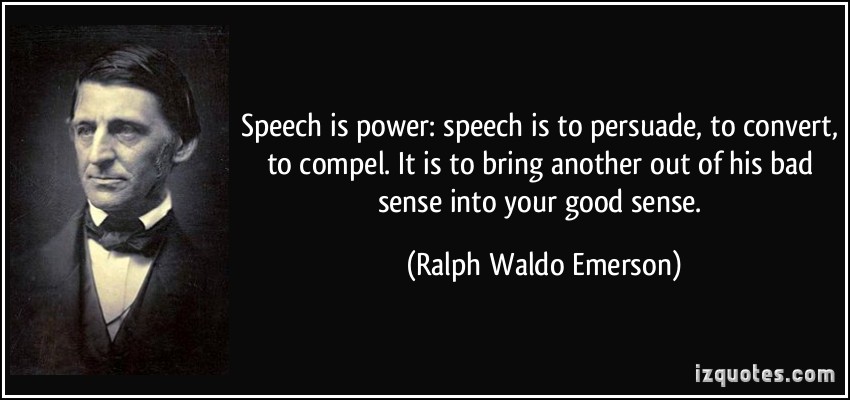
Define public speaking,
Explain the significance of learning public speaking.
Identify the differences between public speaking and daily conversation.

Public speaking is the process of designing and delivering a message to an audience. Publicspeaking is sometimes considered to beone of the most highly valued skills that anindividual can possess. This skill can be used for almost anything, anytime andeverywhere. In this session, we will see how important it is, discuss how public speaking can benefit you personally and learn the similarities and differences betweenpublic speaking and daily communication.

 Please preview the words before watching the video.
Please preview the words before watching the video.
1. Wikipedia 维基百科(一个基于wiki技术的多语言的百科全书协作计划,也是一部用不同语言写成的网络百科全书, 其目标及宗旨是为全人类提供自由的百科全书)
2. deliberately [dɪ'lɪbərətli] adv. 故意地;谨慎地;慎重地
done in a way that is intended or planned
3. entertain [entə'teɪn] vt. 娱乐;招待;
to amuse or interest people in a way thatgives them pleasure
4. medium ['miːdɪəm] n. 方法;媒体;媒介;中间物
a way of communicating information and newsto people, such as newspapers, television etc
5. Postgraduate Recruitment Interview研究生面试
6. wedding reception结婚宴会,婚宴
7. professional life 职业生涯
8. hone [həʊn] 磨炼,训练;提高〔技艺〕
to improve your skill at doing something,especially when you are already very good at it
9. capabilities [ˌkeɪpəˈbɪlətɪs] n. 能力(capability的复数);功能;性能
If you have the capability orthe capabilities to do something, you have the ability or thequalities that are necessary to do it. 能力; 才能
10. critical thinking批判性思维审辩式思维
11. communication skills沟通技巧 沟通能力
12. Leadership Skill领导技巧;领导技能;领导艺术
13. auditorium [ɔːdɪ'tɔːrɪəm] n. 礼堂,会堂;观众席;复数 auditoriums或auditoria
14. audition [ɔː'dɪʃ(ə)n] vt. 对…进行面试;让…试唱
An audition is a short performance given by an actor, dancer, or musician so that a director or conductor candecide if they are good enough to be in a play, film, or orchestra. 试 (镜、演)
15. automatically [ɔːtə'mætɪklɪ] adv.自动地;机械地;无意识地
16. perceive [pə'siːv] vt. 察觉,感觉;理解;认知
17. virtuous cycle良性循环 反义:vicious circle; vicious cycle
18. make a difference 有影响,有关系
19. racial barrier种族壁垒种族隔阂
20. inspirational speech鼓舞人心的演讲
21. equality [ɪ'kwɒlɪtɪ; iː-] n. 平等;相等;[数] 等式
22. Gettysburg Address葛底斯堡演说(美国前总统林肯于1863年所做)
23. noteworthy adj. ['nəʊtwɜːðɪ]值得注意的;显著的
24. icon ['aɪkɒn; -k(ə)n] n. 图标;偶像;肖像,画像;圣像
25. Nixon . 尼克松(美国第37任总统)
26. for maximum impact为求最大效果
27. juiciest最生动的
28. structured adj. 有结构的;有组织的
29. casual adj. 随便的;非正式的;临时的;偶然的
30. descriptive [dɪ'skrɪptɪv] adj.描写的,叙述的;描写性的
31. verbally ['vɝbli] adv. 口头地,非书面地;用言辞地
32. nonverbally不使用语言的
33. rhythm ['rɪð(ə)m] n. 节奏;韵律
34. sophisticated [sə'fɪstɪkeɪtɪd] adj. 复杂的;精致的;久经世故的;富有经验的
 Please watch the video.
Please watch the video.
 Questions to be discussed in class:
Questions to be discussed in class:
1. What you can accomplish with public speaking?
2. How public speaking differs from casual conversation?

 Read the article.
Read the article.
For more information about he benifits of public speaking, please download the document and read the article.
=Reading The 11 Solid Reasons Why Public Speaking Is Important In Your Life.doc(下载附件 32 KB)

 Study the speech and immitate the speaker.
Study the speech and immitate the speaker.
Steve Jobs, Commencement speech at Stanford University
 Questions to be discussed in class:
Questions to be discussed in class:
1. Why did Steve drop out from college? What did he do after that?
2. He repeated: You can't connect the dots looking forward; you can only connect themlooking backwards. What does it mean?
3. What figure of speech did he use in the sentence: It was awful tasting medicine, but Iguess the patient needed it? Can you explain the sentence a lit bit?
4. What could “death”do to our life?


